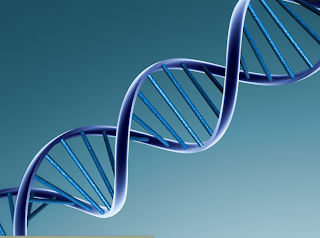Today the UK has
launched a personal genome project, urging 100,000 people to contribute their
genetic information and have their genome sequenced to be put on public record.
Is this a big step in the advancement of sequencing huge sample sizes? Or is
making our entire genome available to
anyone online a step too far?
Our DNA is what makes us who we are; a sequence of bases in
each and every one of our cells which contains the code to making what we see
in the mirror every morning. It is possible for someone to look at your DNA and
determine almost everything about us; the colour of our hair, our eyes or any
genetic diseases we may have or be prone to, without ever having actually laid
their eyes on us.
Whilst it would have previously been near impossible for
many people to gain access to our DNA, a new initiative has been set in place by
The Personal Genome Project UK (PGP-UK) urging 100,000 volunteers to donate
their genetic information for their genome to be sequenced. This has already
been undertaken by other countries, including America in 2005. However, this is
the first time a project like this has been attempted in the UK, and many
sceptics have their doubts.
The aim of those conducting this project is to accelerate
researchers understanding of genes, both normal and defective, as well as how
different environmental influences can affect those genes. However, the
majority of companies sponsoring this research (one of which being google) are
hoping to use this data for commercial exploitation, to specifically target
advertising for drugs that each of us may need, based on our genetic code.
This is one reason why this project in controversial, but
many also have issues with the broad spectrum of individuals who will be able
to view your genetic code. Whilst names and addresses will not be included on
record, the research group involved has warned that the security of participants
is not guaranteed, and they could potentially be identified.
Because of this, a number of tests are included in the
application of those who are applying to be involved, in which only a score of
100% will be accepted, which is designed to ensure that all those involved
fully understand the potential risks.
If you were decide to join the project, and then be
accepted, you will receive a kit to take cheek swabs, and also asked to attend
a clinic to provide more extensive samples, with your genetic information
published within a month.
It is hoped that this sort of extensive record of so many
peoples genomes will allow for a number of major diseases, which have a large effect
on public health, to be linked to genes which have previously been
unidentified. This would be crucial information for those researching therapies
for these diseases, and could dramatically advance our understanding of them.
Do you think you’d be interested in taking part in this
project? Or do you think that having this kind of information about yourself on
public record is a step too far? I for one know I’m definitely going to be
signing up.


No comments:
Post a Comment